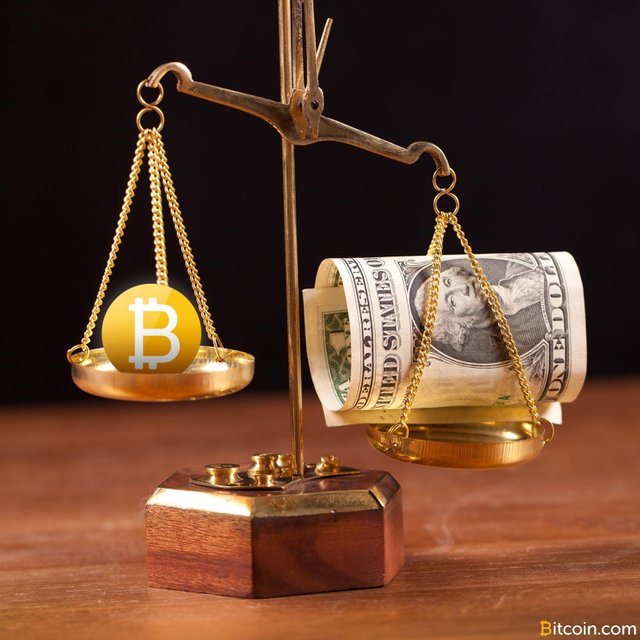Satoshi Revolution- Chapter 2: Currency Creates Freedom and Civilization…Or Oppression (Part 4

The Satoshi Revolution: A Revolution of Rising Expectations.
Section 1: The Trusted Third Party Problem
Chapter 2: Monetary Theory
by Wendy McElroy
Currency Creates Freedom and Civilization…Or Oppression (part 4)
“Historically, money was one of the first things controlled by government, and the free-market ‘revolution’ of the eighteenth and nineteenth centuries made very little dent in the monetary sphere. So it is high time that we turn fundamental attention to the life-blood of our economy—money.”
–Murray Rothbard, What Has Government Done to Our Money?
Currency Creates Freedom and Civilization…Or Oppression
I was seven years old when I realized my parents did not understand some of the most important dynamics of life. I was riding in the back seat of the car with a bag of candy purchased from a roadside store which was supposed to keep me quiet. It didn’t work. A thought tumbled out of my mouth. “Why do we pay for anything?” I asked. “Why don’t people just go into stores and take what they need?”
My mother replied, “It is wrong to steal.”
I explained, “I don’t mean stealing. I mean why do we give people money instead of sharing everything?” My parents fell silent.
When I asked again, my mother shot back over her shoulder, “Don’t ask stupid questions!”
They didn’t know the answer; I recognized this immediately. And their inability to explain why we needed money disturbed me because they discussed money constantly. How to make more, was there enough to repair the car, could they afford to replace the roof, someone needed dental work, what was the spending cap on Christmas? Concern about money ran through every aspect of their lives and, yet, my parents didn’t know how to answer the basic question of why we need it.
“Money is simply how the world works,” they finally explained, “because it lets people buy the things they need to live.” This was a non-answer because it returned me to the question of why we buy the things in the first place instead of sharing. Why do we trade paper for stuff, and why do people give us stuff for paper? At a childish level, I was trying to understand monetary theory and I’ve been struggling with it ever since.
Nothing has been more valuable in that quest than the short book “What Has Government Done to Our Money?” by Murray Rothbard. He does not use the term “trusted third party” or its equivalent in the book nor did he use such a term elsewhere in writing or conversation, as far as I know. Murray was a friend and mentor; I suspect he would have viewed the need to trust a financial intermediary as not being a problem at all, because private banks could offer guarantees such as reputation, redemption in gold and audits. To him, the dilemma of modern money began with government and ended with the free-market that allowed individuals to issue money; Murray named his own hypothetical currency “the Rothbard.”
These were the pre-Bitcoin decades. Money radicals solved the trusted-third-party problem by demanding free-market money and banking; they did this because the only third party on which they focused was government. The solution did not go far enough because free-market alternatives also rested on trust and, any time trust is required, betrayals will occur. But privatization was the best solution possible at the time; the blockchain had not surfaced to allow people to become self-bankers.
“What Has Government Done to Our Money?” belongs to the pre-Bitcoin years but it has significant contributions to offer the cryptocurrency world. There, Rothbard explains the origins of money as well as its pivotal importance to freedom and civilization. Free-market money is rooted deep within the needs of human nature, which makes a lie of the argument that regulating bitcoin is no big deal or even beneficial. If freedom and civilization depend on a free-market money, then unregulated cryptocurrency is essential to human welfare. Rothbard next sketches the catastrophic impact of government on money; namely, it destroys freedom and reverses the progress of civilization. These are the stakes of the game. Rothbard provides a context in which to appreciate the immense liberation that is the blockchain and the immense oppression that is modern monetary policy.
The book is a deceptively simple exposition of the world’s greatest swindle: inflation. The scam was possible because people needed a trusted third party in currency and government legally usurped that role, especially through central banking systems. The scam is no longer inevitable, however, because an intermediary is no longer necessary.
To understand the devastation of inflation, it is necessary to grasp the nature and power of money. Monetary theory needs to be laid out in simplistic terms because an intentional haze of complexity has ensured that people like my parents are left speechless and puzzled when confronted by easy questions. The confusion is intentional because it could be easily avoided. Schools could teach commonsense economics; government and financial institutions could be transparent rather than presenting a brick wall, as the Federal Reserve does about being audited; fiscal policy could be presented in English rather than bureaucratized with impenetrable statistics. It won’t happen. The lack of public awareness benefits government in tightening its grip on money
Some very interesting and though provoking ideas are in these paragraphs. The idea of "necessary inflation" that underpins modern monetary theory certainly deserves to be questioned. In the end, it is possible that inflation might be necessary after all. But, it is certainly appropriate for crypto theory to challenge that belief!